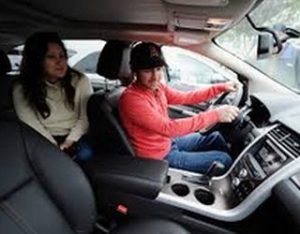 If you’ve spent time with advocates pushing for mass adoption of alternative fuel vehicles, the question always comes up: What will it take? Here’s a few new studies and media reports to consider…….
If you’ve spent time with advocates pushing for mass adoption of alternative fuel vehicles, the question always comes up: What will it take? Here’s a few new studies and media reports to consider…….
- Three out of five (62%) consumers want to see more hybrid models offered over the next decade; two in five (43%) want to see more electric vehicles; 34% want to see more fuel cell electric vehicles; 31% want more natural gas vehicles to show up; and 31% want more flex-fuel vehicles. This comes from a study by Penn, Schoen and Berland Associates LLC. Consumers are more motivated by economic incentives than environmental issues. Economic factors such as increased fuel efficiency or tax breaks are more important than environmental factors. The point: Emphasize economic benefits as much as environmental.
- BMW is making its i3 electric car from carbon fiber that’s very light and tougher than steel. BMW knew that the car needed to be lighter to extend the range, reduce the size and cost of the power pack, and improve handling. The point: Lithium batteries will be much more lightweight, small, and efficient in 10 years, but for now, lightening the car’s body and components is the best option.
- BMW continues to be quite creative in marketing its i3 through test projects and marketing alliances (think megacity mobility). SolarCity and BMW have partnered to offer owners of BMW i vehicles exclusive access to SolarCity’s most affordable solar service option. The partnership will make it possible for many BMW i owners in SolarCity’s territories to power their cars with clean electricity for less than it would cost with electricity provided by their utility company. The point: Tell the story through the entire lifecycle process of the car – what goes into making it and how it’s going to be powered.
- As Schneider Electric’s Mike Calise recently told Green Auto Market, this charging supplier company is participating in a collaborative effort in Silicon Valley. It’s bringing together stakeholders such as employers, a carshare service, and Toyota to set up train stations with EV charging, carsharing, and bike stands allowing for full integration of transportation needs and concerns. The point: Work with community stakeholders to share the cost and carry the message to groups such as commuters, EV owners, bike riders, transportation providers, and employers.
- A new study by Navigant Research found that interest among consumers in battery electric vehicles and plug-in hybrid electric vehicles still remains below the 50% mark. The study concluded that consumers are interested in EVs but want to be won over by the features and price points. The point: Forget about high-end electric vehicles being marketing by Tesla, BMW, and Cadillac. Consumers want more affordable prices and attractive features like charging station driving directions paired to their smartphones and a plentiful and easily accessible charging infrastructure.
- Indiana University researchers surveyed more than 2,000 drivers in 21 of the US’s largest cities about electric vehicles. They discovered that 95% of respondents didn’t know about state and local subsidies, rebates, and other incentives. The point: Simplified education methods are needed.




Good info about auto transport.